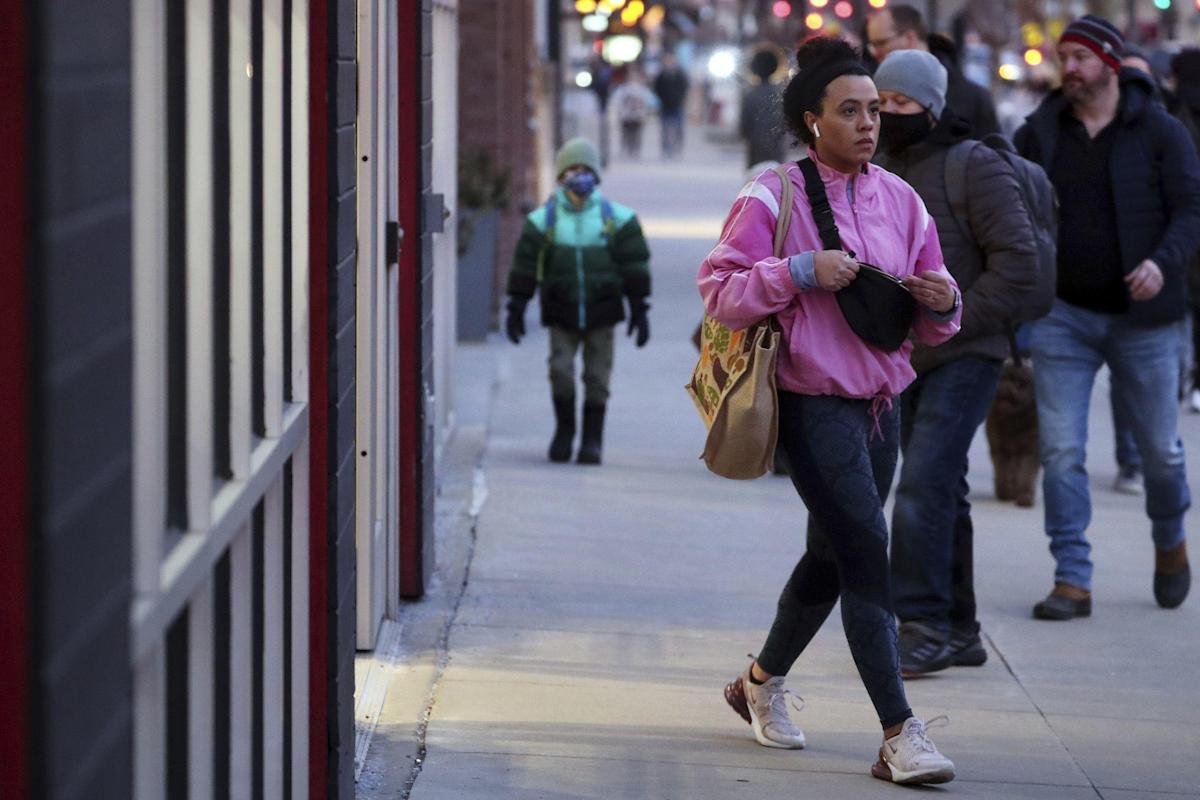
Had Vladimir Putin not decided to inflict atrocities on Ukraine, this weekend would have been filled with retrospectives on what finally feels like the end here of catastrophic COVID-19, after two brutal years of disruption and disarray.
So the world turns. One horror replaces another.
Celebration would never have been the right word for anything to do with COVID-19: Too many Chicagoans were lost to the struggle against a virus that might well reemerge in yet another variant, especially as we approach next winter. But in an interview with the Tribune Editorial Board Thursday, Chicago Mayor Lori Lightfoot described the current moment as “the best place we’ve been in” over the last two years and ticked off many communal achievements of which the city can be proud.
All of us, together.
“Our health care system didn’t buckle,” she said. And she’s right.
In the dark early days of March 2020, when frantic plans were made for portable morgues and hospital beds inside the McCormick Place convention center, that was far from a foregone conclusion. But Chicago is lucky to have a formidable health care sector and thousands of dedicated front-line workers. They held the line and, by Lightfoot’s telling, these historically competitive hospital systems also learned ways to cooperate that should aid the city in the future.
Lightfoot also noted that much has been learned from COVID-19 about delivering health care to struggling communities in Chicago, especially through the effort to vaccinate everyone. While acknowledging vaccination deserts remained in some neighborhoods, a consequence, she said, of misinformation and fear, Lightfoot said that city health officials had learned the benefits of working with closely trusted community leaders (far more effective, she said, than billboards or celebrity athletes) and of the city being willing to literally carry vaccines from door to door. This, she said, should pay dividends in the future.
As big cities go, Chicago has done better than most when it comes to vaccination rates. Rank-and-file city workers, who don’t get much praise, deserve much of our thanks for that herculean effort.
Mask mandates have been dropped all around the city in recent days, a worry for some. But here’s the thing. When those requirements were introduced by both city and state officials, they were driven by hard data. Now, Lightfoot said, those same metrics by which the limitations on personal freedom were first justified indicate that they can be relaxed. And so they should be.
Chicagoans who want to wear masks indefinitely should be respected. But democratic governments have to keep their word, if only to ensure they will be believed and obeyed the next time around. And the Chicago Teachers Union, among others, has to accept that.
Kids pay a heavy price when they are masked; if the data doesn’t support the benefit of a mandate, it’s time for them to see each other’s faces in the classroom, at least where other health circumstances allow.
Lightfoot didn’t mince words when she pointed out “the overwhelming number of Chicagoans who died were Black Chicagoans,” especially those who chose not to get vaccinated. That lack of takeup is still “a deep concern” she said, although she expressed pride at the equality of first-dose delivery among whites and Latinos in the city. “We have to continue to try and convince Black Chicagoans,” she said, “that the vaccine is to their benefit.”
Those COVID-19 fatalities, of course, flow at least in part from poverty and other social and economic ills. Lightfoot argued that the crisis has forced the city to confront those issues on an emergency footing that would not otherwise have happened.
“We have fundamentally changed as a city,” she said. “In some ways, we have changed for the worse. In some ways, for the better.”
That’s an accurate sentiment for a moment that deserves to be marked, and reflected on.
Might we suggest a healthy, optimistic walk this weekend in the fresh air, thoughtful of future possibility and mindful of how much we owe Chicago’s essential workers?
Join the discussion on Twitter @chitribopinions and on Facebook.
Submit a letter, of no more than 400 words, to the editor here or email letters@chicagotribune.com.




